Big sister Maja Spang-Hanssen
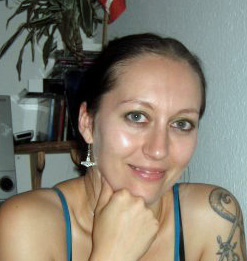
is interviewing her 2 musician-sisters
Mette Spang-Hanssen
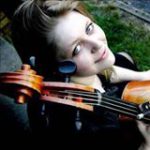
and
Ida Spang-Hanssen
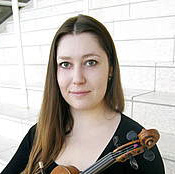
Assens, September 30, 2017
Text and interview: Maja Spang-Hanssen
It’s not everyday you get the task of making a serious interview with your younger sisters, so I of course took a quick chance. Normally there is a professional relationship between the interviewer and the unsuspecting poor ones in the recipient end, whereas in our case the matter is that I know them quite intimately and have had a similar growth. That gives birth to a different personal and relaxed conversation. And I have chosen to talk to them continuously over a weekend where we are all at home, relaxing in the Spang-Hansen childhood residence so that the interview comes as natural sister-smalltalk during the stay.
We have grown up with music as an integral part of our everyday life since we were quite small, as both father (Ulrik, professor at DJM, in our childhood organist at Vor Frue Kirke i Assens) and mother (Solveig, piano teacher at the Assens Music School) has played music as their work and has listened diligently to classical, jazz and a lot of other genres such as blues, flamenco and latin.
- Try to tell a little about how you each experienced growing up in a family of music and how it affected your choice of career and instrument!
Mette:
“I don’t really know how I’ve experienced it, it’s just something I’ve done. And concerning my choice of instruments, so far, it was only an active deselection of keys. It might have something to do with my experience of school concerts as a little girl – I must have noticed some played cello. When I later should choose an instrument, I wanted to play something completely different from what I usually saw – and then I remembered the cello.”
Ida:
“I think I chose violin because I just could not remember other instruments than just violin. I’m not even sure I knew exactly what it was.”
Mette:
“Indeed, you were very little!”
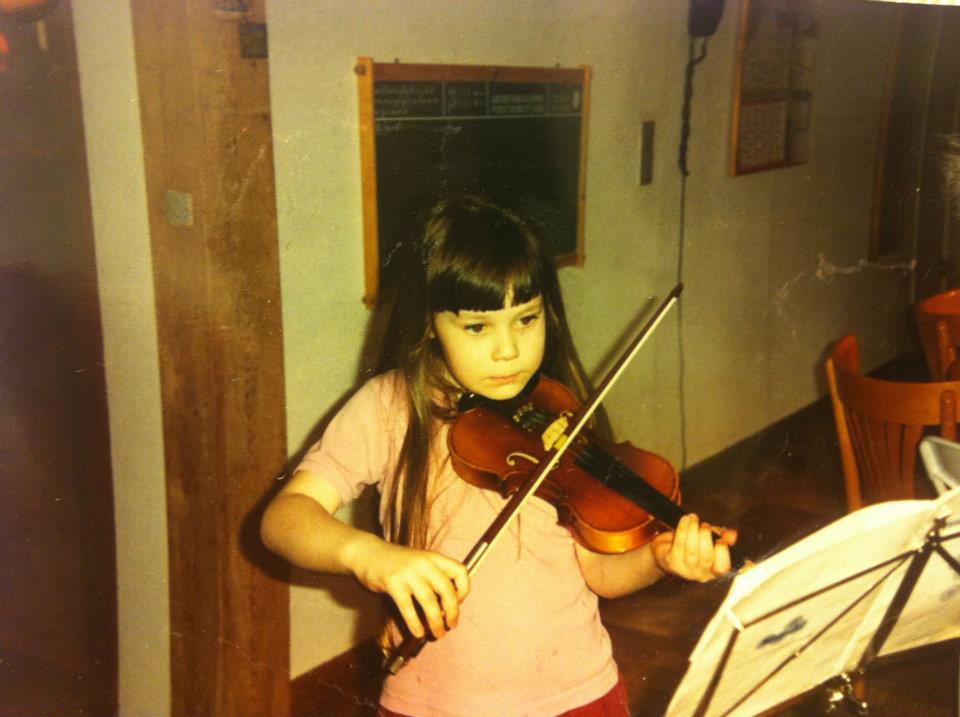
Ida:
“I also remember when Mette came home with her new cello. I had no idea what it was. I’d almost imagined that a cello was probably a kind of great xylophone, or something like that.”
Mette:
“Well, how you’ve experienced it … it’s probably been a little everyday for us. But it has made an impression, for example, lying on the floor and playing while mom was sitting and practicing. Then you heard a lot of Mozart and connect it with confidence. That’s how I feel when I hear Mozart’s C major: It’s like lying at mother’s breast!”

- I also remember that we sat every evening listening to music.
Ida:
“Yes, I have a theory that I like baroque music because many nights when we were going to sleep, father used to put on some creepy organ music and I just thought it was mega-monster-terrifying to listen to, and so I always came crying and said “It’s too sad and scary”. Then Dad had to put on some baroque music, and then I could go to bed again. So I probably associate baroque music with confidence because it was often my lullaby.”
- And this very well links to talking about what styles and works you prefer, beyond classical music.
Mette: “I find it difficult to talk about what styles I prefer. But I remember I once read an interview with Willy and Lise (Stolarczyk, our uncle and aunt, red.) about a cookbook with music that they had made. And it’s a concept I’ve “worked” in accordance with for many years, making music is just like one day to make a good dinner and another day to make a very different dinner that’s good too.”

“When I made potato pizza with goat cheese, Corelli was quite top class … it’s like “every thing in its own time” and I find it hard to say what I prefer. But I think we all have the same soft point for Corelli. And there is no doubt that much of the music I prefer to put on, that’s the music we’ve heard at home as children. When I really want it nice, I hear Mozart’s piano sonatas or Corelli – or Oscar Peterson, something really sucking jazz that Dad put on …”
Ida:
“And Toots (Thielemanns – Belgian Harmony Player and Guitarist, ed.) – and Sivuca (Brazilian accordionist, guitarist and composer, ed.)!”
Mette:
“Yes, all the things we’ve heard in the childhood home. It will always have a special resonance boundary within you. What else – there is far too much to count. But I also find a special pleasure in flamenco, I have to say.”
Ida:
“I really think I’m most impressed with music that moves in some kind of extreme. Something extremely authentic, or something extremely harsh. I get lost in the heat if you can find something like a tough old recording from the 40s by a traditional Gambian storyteller – or some Armenian folk music from super far in the mountains – or hip hop from the deepest southern states. I like it to be a bit wild.”
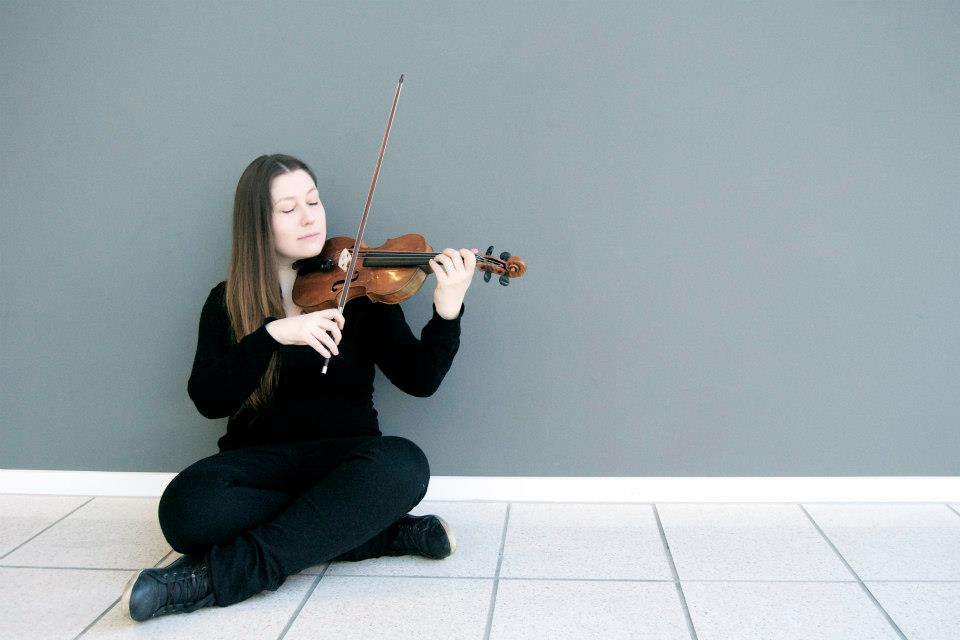
Mette:
“I think it may also be too extreme. It’s fun to hear it like a curiosity or experience, but when you say extremely, I think Sjostakovich symphonies is really cool when you hear it in the living situation, but it’s not what I’m putting on at home. I also like what has a local appeal or a historical touch that adds to the history of music.”
Ida:
“Something that has nothing to do with everyday elevator music. Something, where you get an insight into some culture you’ve never thought of before. But what classical music concerns, I do not quite know…..
Mette:
“There is so much good that you can not choose. I would like to emphasize Mahler, but I would also like to emphasize Tchaikovsky or Puccini, and then you can go on endlessly.”

- You can also emphasize your inconceivable weeping-accompaniment to La Boheme?
Ida:
“Yes, it was really an epic weep trip! I have almost become very careful about that opera! It seemed to me that I just needed to play the last 4 minutes to start crying, even if it was 10am Monday morning.”
Mette:
“O, yes, Puccini knew all the emotional buttons that can be activated!”
Ida:
“In general, I’ve become more and more sensitive to music with time. There really is not much to be heard before I get hysterical goose skin. I almost sat crying while playing Valkyria – just a little. I can almost get stuck in it because I get such a powerful physical reaction when there is something I think is really cool.”
Mette:
“Just wait until you get children, then it will be really crooked! I thought that hormonal reactions were somewhat temporary until a couple of months after birth, but it turns out that it’s just for the rest of the career.”
Ida:
“But about what kind of music you like … eg. to hear a one-and-a-half hour clean Beethoven concert with a tight German, standing and performing it all tremendously controlled … or to hear the whole of “Das Wohltemperierte Klavier” and the like, many people think that’s hugely exciting – but I just think … well – I would like a little more freaking out than that.”
Mette:
“When I was a teenager and went to the conservatory, I told Niels (Mette’s teacher, ed.) that I just was not very familiar with Beethoven. And then Niels said to me, “Well, that’s because you’re immature”, but now I’m 35 and I’m obviously still immature. We played Beethoven’s 9th opening this season and people were like “Uuuh, it’s the biggest of the big ones” and so …
- Isn’t it so that he uses half of the work to finish it?
Ida:
“Yes, about the last half hour.”
Mette:
“Well, it has its moments. But it also has many non-moments and lots of parts that has no effect on me. It’s just incredibly German.”
Ida:
“Of course, Beethoven is nice music, but as you said, you may want to get a little more into the hooks. I don’t know if you remember that “Faust-something” (Petr Ebens stage music for solo organ to Goethe’s Faust, ed.) that daddy once played?”
Mette:
“That spooky circus hell?”
Ida:
“Yes, that’s the most crazy music. Terrifying! And it has always fascinated me enormously. Insane piece! … tell me, are you still recording, Maja? We’re just sitting here, babbling.”
- Oh yeah. We’d better move on in the text! Can’t you tell me a bit about everyday life as a classical musician, ie permanent and freelancer? How does it work for you? How much do you practice and so?
Mette:
“… are you allowed to lie? Well, joke aside, It’s a safe haven for me to be a permanent employee, I don’t have to keep track of anything myself. I’m not good at organizing myself, which is a necessity for many freelancers. Some are good at it and some are less good at it, and I would definitely be one of those who was really bad at it. So I am very pleased that when I get to work my sheet music is ready on my musicstand, which is located the right place with a chair at the right height for me. And a violoncello floor carpet.”
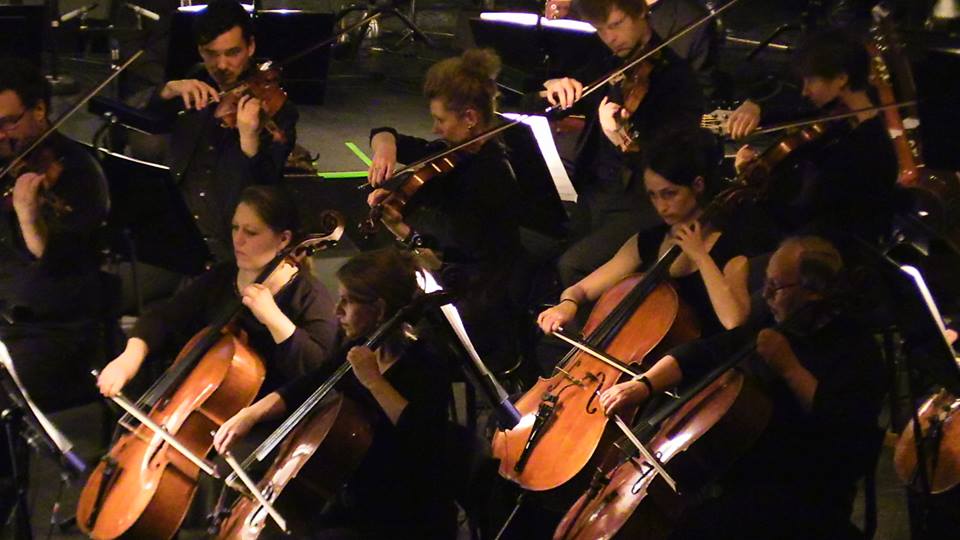
“I, myself, must bring a pencil, but that’s just about all I have to remember. Everything practical is controlled, so I can focus on the music I’m going to play. It certainly could have been a lot of trouble if I had to think about where my music stand now had become. All foreign bombs are sorted away so I can cut into the bone and just concentrate on playing well.”

“And then, of course, I have chosen to add various other things, as I sit in the program committee and the children and youth committee, and I also play chamber music. But how much I practice at the orchestra repertoire fluctuates a lot. It all depends on what we are going to play in the coming week. If it’s Mahler, you can’t get around, then you have to practice and control it. But if for example it’s a Pirates of the Carribean movie, you don’t necessarily check it out, because you’ll probably figure it out during the orchestra rehearsals.”
- Another advantage of being a permanent employee is also the orderly financial situation, I suppose?
Mette:
“Yes, and one of the very best things is that somebody fixes my tax! If I can’t figure it out, I just go to the office and say “Elvis, you fix it right!” And we simply have a great administration who always want to hear your ideas. In that way, I also feel very much that it’s all like “mine”. You take ownership of the place when it works like this.”
- Ida, that’s something different as a freelancer, I suppose, while you’re not staying in the same place for a long time but you’re always on the go?
Ida:
“Yes, you are always a guest. Even though it often ends up being some people and orchestras you know very well, you are still a visitor, and it is obvious that you are constantly aware of how much you perform. If you don’t do your very best, you can easily risk they will never call you again.”
- No failed day, eh?
Ida:
“Not really. Theoretically, as a permanent employee, you can afford to come strolling 7½ minutes before the probation wearing pyjamas …”
Mette:
“Who do you refer to?!!”
Ida:
“No one mentioned, no one forgot, as you say! But as a freelancer, you have already stood for half an hour practicing with your hair back tight. And you never become 100% a part of anything. It’s nice to get around so much and you get to know really many people, but you never get real influence and you don’t get close colleagues in the same way.”
- Isn’t it hard to live in one country and work in another?
Ida:
“As a freelancer, you become the eternal commuter. The most difficult thing is that you don’t get home after work. After a long day of work, you go home to someone else or in a hotel room. But perhaps what has been most difficult for me is balancing. There isn’t really anything between 0 and 100. Either I’m working as a crazy guy for maybe weeks in a row, or I’m in Berlin, where I really need to do nothing but practice. It may be a little strange to go for a week in slippers and nightwear without having any duties, and then suddenly work terribly hard and stay somewhere else. The fascinating thing about it is that you really get many acquaintances, and sometimes you are hired for some rather weird projects.”
- In honor of the readers, maybe you would like to retell one of the strange projects you have been involved in?
Mette:
“What about the event on Skarø (small island in the South Funen island of about 1.97 km² and about 30 inhabitants, ed.)?
Ida:
“Yes, that was pretty strange! We were hired, me and Mette and a few others, as a string quartet, to something that was probably a kind of IT conference, or a retreat of some kind, consisting of people who lived in tents and what do I know. We did not quite know what it was, but we got the nodes and found out that we should play The Pink Panther, a piece by Coldplay, some Boccherini and finally Grieg’s Morning Mood in a totally terrible arrangement. And then we found out that it would take place at 7 in the morning on Skarø, a small island outside of South Funen, for some morning wake up.”
Mette:
“Yes, we got up at 3 at night in my home in Odense.”
Ida:
“And then at 5am a speedboat picked us up in Svendborg and sailed us out to Skarø. Out there we sat on a plowed field under a pavilion and played Coldplay arranged for strings, in mud to the ankles and wearing concert clothes before the devil got his shoes on. It was a very damp morning.”
Mette:
“Afterwards we had breakfast and we were boarded home again with a Skarø ice cream each in our hand. Then we sat there, at 8.30am in the speedboat, wondering, “Were we at work just before?” Very strange!”

Ida:
“It was a good job! And they also paid well. But when people say that musicians have a luxury job where they do not meet before 10 o’clock they are invited to think twice. Sometimes we meet at 5 o’clock in the morning in a plowed field. It doesn’t have much to do with director time.”
Mette:
“Well, you often hear people saying that different professional groups, including musicians, work too little, and that working in an orchestra is a luxury job. And it is, in some areas. It is an advantage that other than musicians make sure that all the practical is done, but it is also a necessity.”
Ida:
“Yes, otherwise it would not be possible to have orchestras at any significant level. I choose to listen only to opinions about musicians’ work from people who have tried it. People who themselves have played in a Wagner opera, for example.”
- Do you feel heavy on your shoulders to think of all the financial cuts that threaten the Danish orchestras like a big hanging cloud?
Mette:
“Yes, it feels very heavy, of course. That’s something we can clearly notice. If a member resigns, no new member will be hired on a contract, which means that we have to deal with one less. This means again that there will be no fryer, which in turn means that we will all be severely worn out.”
Ida:
“And as a freelancer, it’s scary that positions are gone before you can get near them. The posts are not closed, but they are just not being occupied, because there is not enough resources. And if they can’t even afford to hire freelancers into a contract, you’ll be left behind with the hair in the mailbox. So you can clearly notice the cuts as a freelancer too. When I started about 10 years ago, as a small student, the contracts were written with loose hand. Even before I had taken my bachelor, I received a six-month contract at the Aalborg Symphony Orchestra. But now … there is not much left of that.”
Mette:
“Many freelancers fall off the course and find something else to do. And in the orchestras we dare not think long-term anymore. No one dares to do anything wild, everything must be kept within a very tight frame, because we don’t know if the braces last, if you have to say so. Nobody knows how it’s going to be in 2 years, and not at all in 4.”
- Mette, would you like to tell us a little about where you are in your career right now?
Mette:
“Well, that is also quite inextricably linked to where the Odense Symphony Orchestra stands right now. It’s actually a very exciting place because we have that Ring Project on the way – Odense’s edition of the Nibelung’s Ring of Wagner. It is a huge task, so we are very excited.”
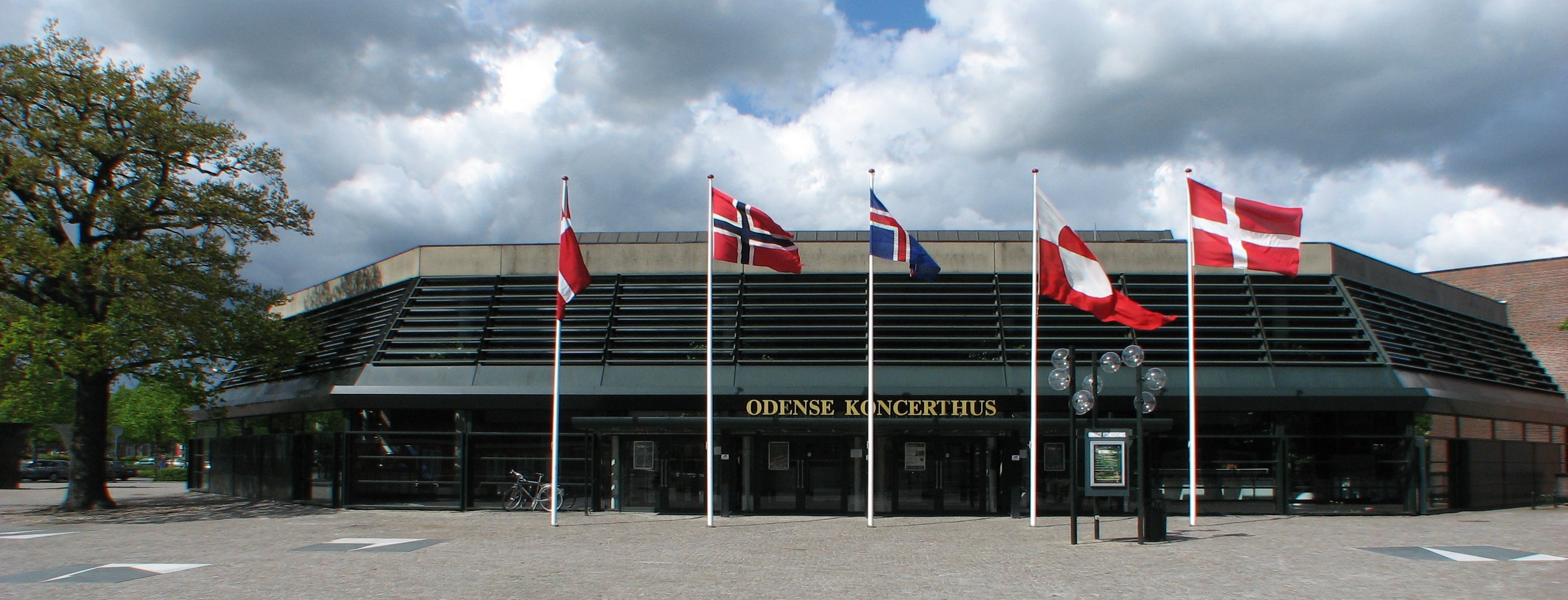
“In addition, I’m in the orchestra’s Children- & Young-Committee, which is also quite exciting, because I think we are doing something really good. We try to incorporate something cyclically thus that there should be some annual recurring actions, such as visiting the symphony orchestra at specific grade levels. We try to make it part of a continuous cultural formation and try to make sure that all children get acquainted with the music.”
- How much direct influence do you have on that work?
Mette:
“Some, but we also have a selected child-/youth-employee who is doing the practical part with eg. contact to the schools. I participate in the strategic planning that we carry out in the committee.”
- And in the program committee, what are you doing there?
Mette:
“What matters most right now is that we have to look around for a new chief conductor. And that’s probably the devil’s task, I think – it’s not easy at all! But on the other hand, I also think that this is what I have been looking forward to. Now I finally have the opportunity to influence and advise.”
- Now that you spend so much time on your children-/youth-work for everyday life, does it affect how you handle Silas’ (Mette’s 3 year old son, ed.) musical education?
Mette:
“I’m sorry that we do not hear so much classical music at home, that’s what I think most often. I’m trying to put something on, but Silas gets annoyed by it, because he may feel that I can’t concentrate on him and our conversations because I get distracted by the music I hear. I would like to give him more classical input, but I have no idea at all whether he should play classically or not. All I have planned is that he will have to go to piano at some point, as part of his basic education. I mean that children must have musical education as part of their general education, as well as Danish and mathematics. And I just think that piano is a good place to start, it gives an overview. But then … Silas keeps talking about tuba. I do not really know what to expect!”
Ida:
“He can live in it? Oh, maybe it’s not so stupid, he’s got some good big lips!”
Mette:
“I imagine something like percussion …”
Ida:
“I’ve always imagined him as a brass blower.”
- Ida, now you might want to tell a little about how you experience going to the soloist class in Aarhus while trying to take care of your boyfriend back home in Berlin.
Ida:
“Practical practice in the solo class is to take a few hours now and then. I take hours at our new violin professor in Aarhus. It is standardized for a number of hours in the study plan, and we distribute them as needed – it depends very much on when I need an hour and when it suits, or if my teacher thinks I need extra hours. For example, if I have a competition, I’ll take some extra hours and if there’s nothing for a month, maybe I do not take lessons there.”
- When are you going to play debut concert?
Ida:
“It’s not yet determined. Probably in about a year. It depends when I feel ready. My solo class study has fortunately given me a lot of freelance work.”

“Before I started in the solo class, it could be a little limited with that, and I was not too much in Denmark either. But the day after I passed the entrance examination, I received an email from the head of the Aarhus Symphony Orchestra, who asked if I could come. And I had not heard from them for a year. Then it’s just like a blow, so I have to say I’ve been lucky to have many opportunities in Denmark, just because I’m studying in the solo class in Aarhus. However, it has not harmonized so well with wishing to live in Germany at the same time.”

“I also do some things down there, but it simply does not provide enough money compared to what I do here. Freelance musicians in Berlin are very poorly paid. Eg. a concert with a professional chamber ensemble in Berlin – it gives about a quarter of what I would get in Denmark for a similar concert. So it just can’t pay off. And it’s incredibly hard to get a foot in there.”
- Mette: Isn’t it important to be recommended by a teacher?
Ida:
“Well, if you don’t have a teacher down there, if you don’t have the very right teacher even who can present you in the right places, then there’s not much happening. Here in Denmark, it’s more about meeting on time and if you’re playing good, people are not really indifferent to whether you’ve just entered the 4-o’clock-train.”
- But what are your plans when you finish the soloist class?
Ida:
“I would like a permanent position in a Danish orchestra. And I really like all the Danish orchestras.”
- What do you do if you get a job in Aalborg and Michael gets a job in Copenhagen?
Mette:
“What a luck, that your face’s expression does not affect the sound recording!”
Ida:
“Then we will to move to Aalborg! After all, it’s a little easier to get a job anywhere in the IT industry than it is for a violinist, and Michael is also aware of this.”
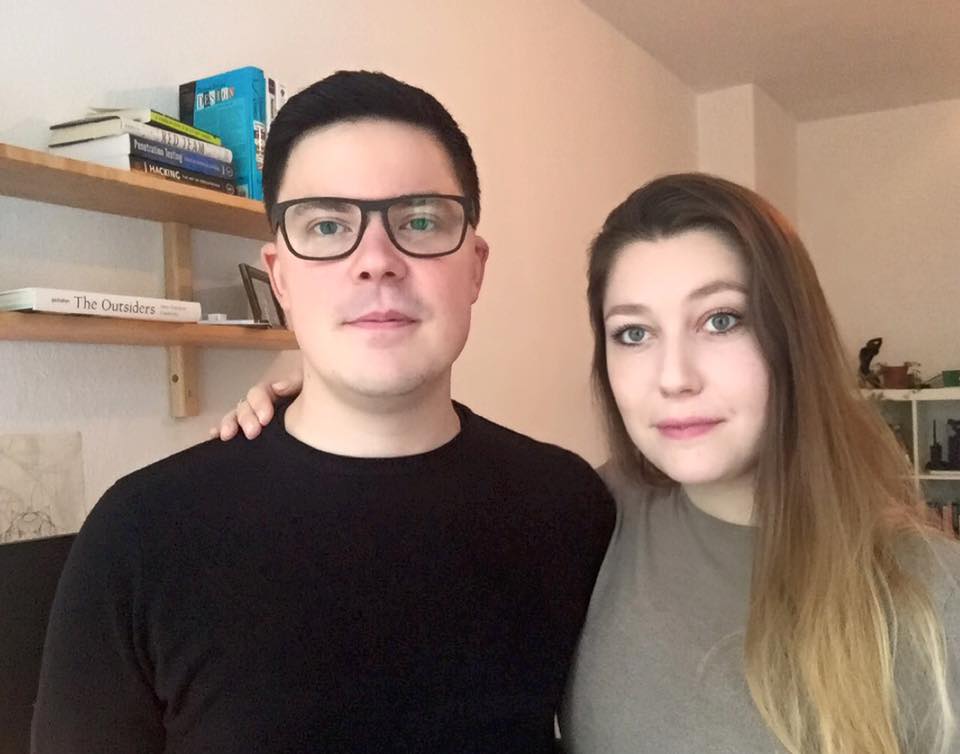
“But we have also discussed the possibility that if I can make it work as a freelancer, I will continue with this.”
- Now I think we should return to the beginning and talk a little about our fathers origin! What significance has it had for you that dad has been at the top of professional music life throughout your life and been ambitious, on his own behalf and on your behalf?
Mette:
“It’s hard to define. I’ve never felt I’ve done it to please my dad. What it has meant, which has been a fun thing, is that I eg. have been able to play with him for my debut concert, and in general, we play jobs together all of us – I think this is a lot of fun. It’s not something that carries our careers out there, it’s something we do because it’s cozy.”
Ida:
“I can feel his influence, but there is also the difference that, as a musician, I have almost grown up under his wings. He has been there since I started at the conservatory at the age of 17, and my teachers regularly fled to him! And then he suddenly came up like this, “Well, I’ve heard you did not go to the lesson in ear training last Friday?” or “I heard from Kim (Sjøgren, ed.) that you were not well prepared after the holidays?” And then you stood there with hanging ears! So he has been very involved and it has been inevitable. Eg. some exams have also had to be re-arranged because he was not allowed to sit for my exam as the only examiner. But in general it has been very good. He has also been a great inspiration musically.”
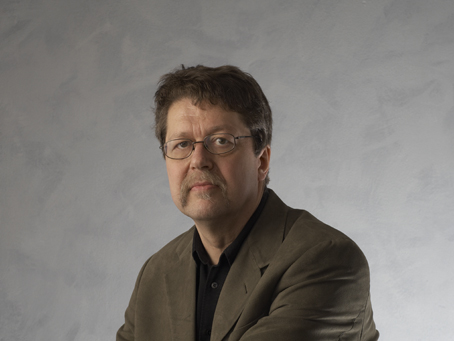
Mette:
“Of course, he has, I have to agree completely. When we look at our own musician functions, we don’t need to use any particular sharp lens to discover our father’s tracks. Not only with the interest of the music, but the way to deal with it. The whole angle of how music is performed and impressed. I have to admit that in fact, Dad is probably the biggest influence I can spot. Of course, Niels (Ullner, Mettes violoncello pedagogue at the conservatory, ed.) has meant a lot and he has meant the most in the technical field. But musically, fundamentally, I think father has had greater influence.”
- It had also been strange if Dad had more influence on playing cello, technically!
Mette:
“Yes, a little! Even though, before I arrived at the conservatory, he could actually come up with some good advice because he once played double bass.”
Ida:
“I should once play a Corelli sonate I had brought to my teacher, who is also a baroque expert, and she said, “Oh, we don’t have to spend time on that, you can look at it with your dad!” So she thought I was in good hands.”
Mette:
“He has a knowledge that not so many others have.”
Ida:
“And he has a very pragmatic attitude that can be very healthy. Once I was annoyed that I did not succeed in joining a famous competition for strings, where he just said, “But do you ever want it?” “Not really,” I answered, and he said that I should choose my matches carefully. There is no need to do anything just because others do.”
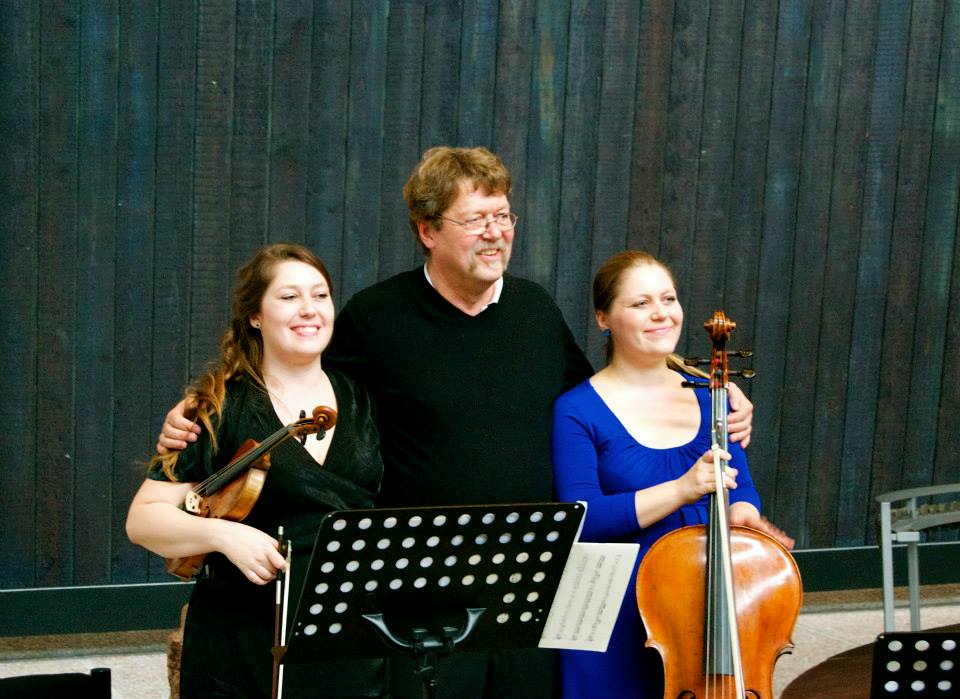
“I also remember something he said to a rehearsal with our trio, which was a little fun. Mette struggled a bit with a tone she could not hit and said something like “I can’t understand what I have to do to hit that tone!” to which father replied, “Maybe you should be lucky!” I think that really is very good, a relaxed philosophy, because you can not do everything perfectly all the time. Sometimes you just have to be lucky.”

Mette:
“I use that quite a lot! And, therefore, I do not suffer from stage scares because I accept that mindset.”
- Now we have talked a little about father and his influence on your professional work. But what about mom? Has she had any influence on your music life? For example, when you were small girls and were lying on the floor, playing and hearing her practice the piano?
Mette:
“Everything practical! Mom has been an indispensable support in the practical field. Not least now where I have a child.”
Ida:
“She has also greatly contributed to making the music something safe. You have the feeling that music is safe and nice because we were sitting there and playing with Barbie dolls while she was playing. And I stood myself and practiced while she was cooking and shouted: “It must be Fis! Not F! ” out from the kitchen. There has always been 100% support.”

Mette:
“Maybe she has not meant so much professionally, but for my “musical mother’s milk”, if you like, she has meant a lot. All the songs you know and so. She has largely contributed to shaping my music taste and musical formation from the early childhood.”
Ida:
“And, of course, she is a better eartraining teacher than dad! I remember that they both trained eartraining with me when I was going to search the conservatory. And in that area, mother has a better educational approach.”
Mette:
“That’s something Mom really masters: Eartraining for dummies! And she also taught us to play piano when we were small. She may not have had as much influence on my artistic identity as Dad, but on my musical foundation – definitely!”
Ida:
“And she was the one who was sitting and sewing Mozart wigs for the whole music school at events!”
Mette:
“One could say that it was probably Mom who was the most visible in our music school, and when we arrived at the conservatory, Dad took just over. So they have both meant a lot.”

Edition and Copyright: Editshop.dk
